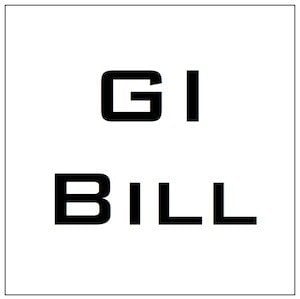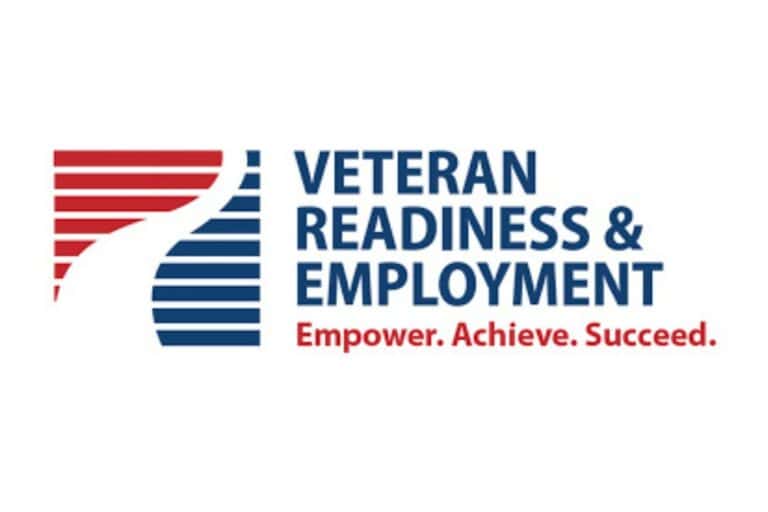Is VA Playing Fair Denying Forever GI Bill Restoration Requests?
Veterans fighting for Forever GI Bill restoration after the closure of their college are frequently eligible to get their benefits restored, but some are complaining the agency isn’t playing fair.
Brought about by the rash of for-profit college closures, Congress decided to take action because many veterans felt duped out of their GI Bill benefits without being allowed to complete their course of study.
Commonly, students are able to simply transfer their course credits between well-respected brick and mortar institutions. However, with for-profit colleges, frequently students struggle to transfer between institutions.
The process is further complicated if the institution, college or university closes out of financial insolvency without taking steps to protect students.
Around 700,000 veterans use the GI Bill annually. As of 2017, around 23 percent of veterans receive their GI Bill benefits while attending college at a for-profit institution. Statistically, based on a GAO report, many of these veterans are at higher risk of their university closing than nonprofit universities.
And, the closing part is what this article is all about.
What Led To Forever GI Bill Restoration
A Military Times article highlighted that 12,000 GI Bill veterans were adversely impacted when the for-profit college chain Corinthian Colleges and ITT Technical Institute closed a few years back. Recently, around 1,700 students were impacted when 18 Art Institutes and Argosy University closed.
Veterans affected were left without their valuable benefits with meaningless credits traditional brick and mortar universities would not accept.
“It saddens me that we must be here today, and it saddens me to hear the stories about how school closures have continued to impact veterans’ dreams of earning their degree,” said Rep. Gus Bilirakis, R-Fla.
The recent Forever GI Bill legislation addressed restoration for veterans impacted by the Corinthian- and ITT-era closures unable to transfer credits after a mid-semester closure.
An estimated 2,000 veterans were able to receive restoration of their GI Bill benefits.
However, the legislation is not as favorable for veterans who experience the problem now. VA will supposedly only allow recovery for benefits lost during the semester of the closure rather than through the duration of the program prior to closure.
Forever GI Bill Closure Example
VA Calls These “Special Applications”
2015-2017 Closures: Let’s say a veteran is studying to complete a training program to become X at the for-profit college ITT in 2016 for two years but the school closed. The degree program does not transfer to any other college or university meaning the entitlement paid out during that period is totally useless.
As a special application, VA could reinstate the entitlement for the duration impacted.
VA Calls These “Regular Restoration of Entitlement”
2017-Present Closure: Let’s say the same scenario for goal “X” except the school was called Degrees-R-Us and it closed in 2018 mid-semester after 2 years of being in the program. That veteran might only be eligible for reinstatement of benefits for the monies paid during that semester.
She wouldn’t be eligible for reinstatement of her entire GI Bill entitlement paid out for worthless credits based on the logic VA is now using to adjudicate benefits.
Current GI Bill Restoration Decisions
I’ve started to see various decisions on the GI Bill from veterans confused about the basis for a denial of restoration who believe VA is being unfair in how it’s applying the statute.
Under Public Law Section 109 of the Harry W. Colmery Veterans Educational Assistance Act of 2017, veterans are supposed to get relief if their college or program prematurely closed.
The Muskogee VA Regional Office is responsible for adjudicating the claims.
As an aside, have you ever been to Muskogee, Oklahoma?
Great BBQ, but the town is really something else – – a collapsing downtown – – sporting the VA Regional Office supposedly with the biggest budget of all ROs, $8.5 billion.
How Public Laws Are Interpreted
Normally, when Congress passes a new Public Law, the law will be codified into the United States Code as a statute. It will then be interpreted as a regulation by the Department of Veterans Affairs if the additional interpretation is necessary for implementation following a period of notice and comment.
From there, VA will usually create some kind of interpretive policy manual to help adjudicators. VA Vocational Rehabilitation & Employment uses the M28R. Compensation relies on the M21-1MR. There are many of these policy manuals for all business lines.
Usually, VA adjudicators will reference the statute, regulation, and sometimes the policy where the same is relevant to the decisionmaking process.
No Regulatory Interpretation, No Published Policy
That does not seem to be the case with GI Bill restoration decisions from Muskogee VA Regional Office lately.
The agency is using a smattering of terms without reference to the statute or regulation instead referencing only Section 109 of the Public Law, which is impossible for regular Joe’s to read.
Why is that?
During my preliminary review, Section 109 of the Public Law was codified (38 USC § 3699) but the Secretary did not apparently promulgate regulations or a publicly posted interpretive manual.
The decisions are simply referencing the Public Law using terms not in the Public Law or Code. This leads me to believe VA is using a procedural policy buried on its website that is not indexable by Google.
So, no one can find it without the specific URL, like what VA did to children with Spina Bifida seeking benefits.
This is a move VA uses when it lacks funding to properly implement a law passed by Congress. Called an unfunded mandate, we see Congress sometimes passing laws to boost appeal to voters without providing the funding necessary to fully implement the law.
Unfunded Mandates – The Spina Bifida Example
That is what happened with the Spina Bifida program in the 90’s that granted significant benefits for children of Vietnam veterans on account of exposure to herbicides like those in Agent Orange, Agent White, and Agent Blue, for example.
Congress did not properly fund the mandate, and VA created an adjudication model that precluded access to the benefits. One case I helped on back in 2013 as a journalist was that of Honey Sue Newby who was the first Spina Bifida child to receive the full scope of the benefits sought.
Meaning, it took 15 years for VA to finally adjudicate, and that was only after publishing a lot of material exposing what VA was doing. VA finally provided use with its impossible to locate the adjudication manual that its adjudicators were not following.
Back To Forever GI Bill
What I can locate as of now is the Public Law that is difficult to read and its incorporation into 38 USC § 3699 in 2017 with a minor amendment effective September 29, 2019.
On VA.gov, the agency explains the following:
Closures January 1, 2015 to August 16, 2017
If you attended an Institution of Higher Learning (e.g. college or university) program from January 1, 2015 to August 16, 2017 using your GI Bill benefits, and you have not transferred any of your credits to another college, you may qualify for restoration of the entitlement charged for the term you attended during the program or school closure.
Closures After August 16, 2017
VA will not charge you for the term, quarter, or semester you were attending when the school closed or your program was disapproved if:
- your college or program closed permanently, or
- a change to VA regulations or a new law caused your program to end, and
- you did not receive credit, or lost training time for your program.
Some of the terms I’ve seen VA bat around are denials when the closure was not mid-term, though the term “mid-term” is not defined.
I attempted to evaluate what “lost time toward the completion of the program of education” means, but it is not explained within a regulatory framework that I have located yet or a policy manual that is readily accessible on VA’s website.
What about when veterans receive invalid credits not accepted by other schools or where the transcript is invalid because the institution no longer exists?
What VA frequently does in instances like this, where the funding is lacking, is refuse to interpret ambiguities within Notice and Comment, claim the relevant statutes are plain without need for interpretation, but then interpret claims using terms not included in the statute or Public Law.
Let Me Know
Definitely check-in and comment below with your experience if you were recently denied GI Bill restoration. Whether or not VA is correct in its final conclusion, one thing is clear, the agency is not playing fair with veterans when denying benefits.
The agency is required under the 5th Amendment to provide notice of the basis for the denial including the proper laws. Here, VA seems to be hiding behind ambiguities and using incorrect terminology in the denials.
This continued mistreatment of veterans only serves to reinforce the well-deserved stereotype that the agency is simply not on our side when it could and should do more.
Is it so hard to tell veterans the truth? Why not simply point out Congress failed to fund the Forever GI Bill properly resulting in veterans needing restoration being screwed?
I am curious to hear if this is an issue or if the veterans eligible to apply once an institution closes are receiving the required notice from VA about their rights.


Glad to hear that about Muskogee office. They cost me 6 years of aggravation. Ben they stuck me there as Muskogee handles Mustard Gas claims. Should I could ask to be transferred back to Tampa RO since the MG part has been adjudicated?
The VA NEVER makes decisions that benefit the Veteran,
The VA mentality is sick and they need to be booted in the crotch, literally.
*”Great BBQ, but the town is really something else – – a collapsing downtown – – sporting the VA Regional Office supposedly with the biggest budget of all ROs, $8.5 billion.”*
There it is in black and white! It’s all about monies and how it’s used!
That could be why the “laws” are written to help the VA retain it’s ill gotten gains – plus – how many of these “for profit” colleges and universities have faculty members who became rich(er)?
Come on now. We’ve read plenty of articles where VA employees and their (business) partners have robbed our taxpayers! Why should they stop ripping off the taxpayers!
Lastly, IMO, this is exactly why the “laws” ARE written so poorly and convoluted! It’s so the VSO’s can rip off the taxpayers!
Yep..,. True.
And too Ben and all, an excuse to go back to Congress to ask for money.
Paid for care that leaves veteran laying in feces and urine. And leaves vets with zero updated degree for employment. Ben, most of the federal government should be privatized so people involved can be held accountable under the regular legal system. If the laws are still being applied. Make govt small to where only a few hands are involved.
Reduce size of govt to improve accountability. I guess Trump is sold on the VA secretary Wilkie and all. Lip service.
And so, as always, privatization without watchdogs (enforced regulations) leads to pork that is only pork and no benefit to those intended.
@Lem,
That could be the reason why lots of money is moved around which is only enriching employees at the VA and for profit colleges and universities!?!
Ben, they are moving money and parking money. Then acting the victim to the Congress. Plus, they are spending out their money on stuff instead of on real issues so they can get even more money the next year. Squander and pocket. My opinion.